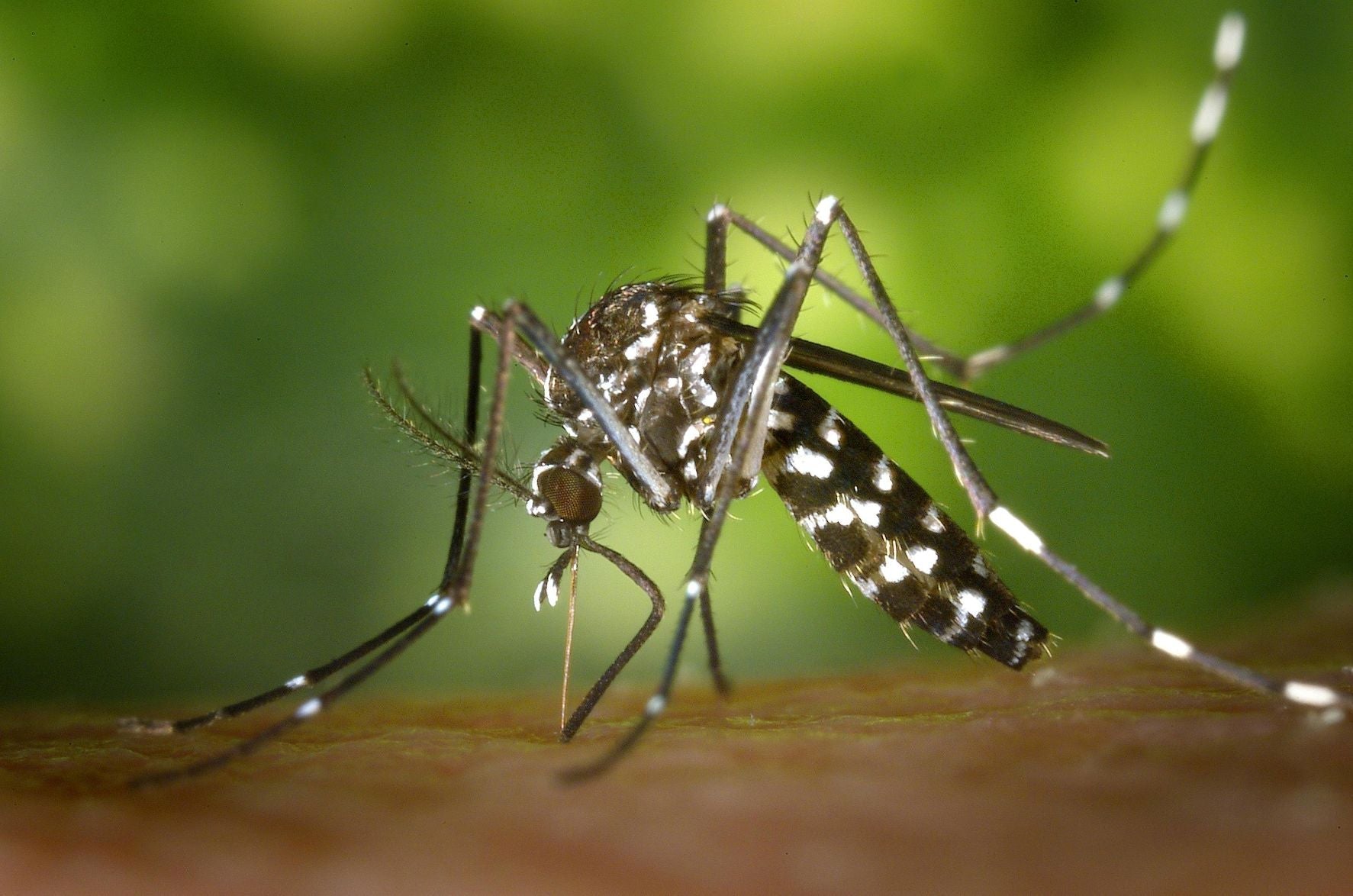-

Enfermedades transmitidas por mosquitos: tipos, síntomas y consejos de prevención
-

Por qué es importante esterilizar los biberones: seguridad e higiene para los bebés
-

¿Con qué frecuencia debes limpiar el refrigerador? Consejos para un refrigerador limpio y organizado
-

Bolsos de mujer: moda y funcionalidad en un solo accesorio
-

Características esenciales de los hospitales que salvan vidas: lo que todo centro de salud debe poseer
Henna para el cabello: ¿es la alternativa natural adecuada al tinte químico para el cabello?
- 25 Tiempo mínimo de lectura

Opte por lo natural con la henna para el cabello: una alternativa segura y sin químicos a los tintes tradicionales.
La henna capilar es una alternativa natural a los tintes químicos, utilizada durante siglos para teñir y acondicionar el cabello. Se elabora a partir de las hojas de la planta de henna y ofrece una gama de colores que va del rojo al marrón y el negro. Muchas personas eligen la henna como una opción más segura y natural para teñirse el cabello, pero es importante comprender las diferencias entre la henna y los tintes químicos antes de tomar una decisión.
¿La henna es buena para teñir el cabello?
¿Cansado de usar tintes químicos que dañan tu cabello y cuero cabelludo? ¿Buscas una alternativa natural que te dé un color hermoso y vibrante sin los efectos secundarios dañinos? Si es así, considera probar la henna capilar.
La henna se ha usado durante siglos como tinte y acondicionador natural para el cabello. Elaborada a partir de las hojas de la planta, este tinte natural puede darle a tu cabello un intenso color marrón rojizo, hermoso y duradero. Pero ¿es la henna realmente una buena opción para teñir el cabello? Analicemos con más detalle sus beneficios y desventajas.
Una de las mayores ventajas de usar henna para teñir el cabello es que es completamente natural. A diferencia de los tintes químicos, que pueden contener ingredientes agresivos que dañan el cabello y el cuero cabelludo, la henna es suave y segura. Puede ayudar a fortalecer el cabello, haciéndolo lucir más saludable y vibrante. Además, la henna es una excelente opción para personas con piel sensible o alergias, ya que es menos propensa a causar irritación o reacciones alérgicas.
Otro beneficio de usar henna es que puede ayudar a mejorar la salud general del cabello. La henna tiene propiedades acondicionadoras naturales que ayudan a nutrir e hidratar el cabello, dejándolo suave, brillante y más manejable. También puede ayudar a reparar el daño causado por el peinado con calor, los tratamientos químicos y los factores ambientales. Así, la henna no solo te dará un color hermoso, sino que también ayudará a mejorar su estado general.
Sin embargo, usar henna como tinte para el cabello tiene algunas desventajas. Una de las mayores preocupaciones es que su aplicación puede ser engorrosa y lenta. A diferencia de los tintes químicos, que se aplican rápida y fácilmente en casa o en un salón de belleza, la henna requiere más tiempo y esfuerzo para prepararla y aplicarla. Necesitarás mezclar el polvo de henna con agua u otro líquido para crear una pasta, que puede ser engorrosa y difícil de trabajar. Además, la henna puede tardar varias horas en actuar en el cabello, por lo que deberás dedicarle bastante tiempo al proceso de coloración.
Otra posible desventaja de usar henna es que puede ser difícil lograr un tono o color específico. La henna suele dar al cabello un color marrón rojizo, pero el resultado final puede variar según el color natural del cabello, la calidad del polvo de henna y el tiempo que se deje actuar. Si buscas un tono o color específico, quizás debas experimentar con diferentes mezclas de henna o consultar con un colorista profesional.
En conclusión, la henna capilar puede ser una excelente alternativa natural a los tintes químicos para quienes buscan una forma segura y suave de teñirse el cabello. Ofrece muchos beneficios, como propiedades acondicionadoras naturales y una mejor salud capilar. Sin embargo, tiene algunas desventajas, como ser engorrosa y lenta de aplicar, y la dificultad para lograr un tono específico. En definitiva, que la henna sea la opción adecuada para ti dependerá de tus preferencias personales y necesidades de cuidado capilar.
Henna para el cabello vs. tinte químico
¿Cansado de usar tintes químicos que dañan tu cabello y cuero cabelludo? ¿Buscas una alternativa natural que te dé un color hermoso y vibrante sin sus efectos secundarios dañinos? Si es así, considera probar la henna capilar.
La henna capilar se ha utilizado durante siglos como tinte natural y acondicionador. Elaborada a partir de las hojas de la planta de henna, este tinte natural le da al cabello un color intenso y profundo que dura semanas. A diferencia de los tintes químicos, la henna no contiene químicos agresivos que puedan despojar al cabello de sus aceites naturales y dejarlo seco y quebradizo.
Una de las mayores ventajas de usar henna capilar es que es completamente natural y segura. A diferencia de los tintes químicos, que pueden contener ingredientes como amoníaco y peróxido que pueden causar reacciones alérgicas y dañar el cabello, la henna es suave con el cuero cabelludo y el cabello. Incluso puede ayudar a fortalecer y acondicionar el cabello, dejándolo con una apariencia y sensación más saludables que nunca.
Otro beneficio de usar henna para el cabello es su larga duración. Mientras que los tintes químicos se desvanecen rápidamente y requieren retoques frecuentes, la henna te da un color vibrante que dura semanas. Además, al desvanecerse, lo hace de forma natural, sin dejar raíces antiestéticas ni líneas marcadas.
Además de ser un tinte natural, la henna también puede ayudar a mejorar la salud general del cabello. Este tinte vegetal ayuda a retener la humedad, prevenir la rotura y promover el crecimiento del cabello. Esto significa que tu cabello no solo lucirá espectacular con la henna, sino que también estará más fuerte y saludable a largo plazo.
Si estás considerando cambiar a la henna capilar, hay algunas cosas que debes tener en cuenta. Primero, la henna puede ser un poco engorrosa de aplicar, así que asegúrate de proteger tu piel y ropa antes de empezar. Además, la henna puede tardar más en procesarse que los tintes químicos para el cabello, así que prepárate para reservar algo de tiempo extra para tu sesión de coloración.
También es importante tener en cuenta que la henna puede no ser adecuada para todos. Si bien la mayoría de las personas pueden usarla sin problemas, algunas pueden ser alérgicas a la planta y experimentar irritación u otras reacciones cutáneas. Si tienes alguna duda sobre el uso de henna, asegúrate de hacer una prueba en una zona específica antes de aplicarla en todo el cabello.
En conclusión, la henna capilar puede ser una excelente alternativa natural a los tintes químicos. No solo proporciona un color vibrante y duradero, sino que también ayuda a fortalecer y acondicionar el cabello. Si buscas una forma más segura y natural de teñirte el cabello, prueba la henna. ¡Tu cabello te lo agradecerá!
Alternativas naturales al tinte para el cabello
¿Buscas una alternativa natural a los tintes químicos para el cabello? ¿Conoces la henna? Se ha usado durante siglos como tinte natural y cada vez es más popular como una forma segura y efectiva de teñir el cabello sin los químicos agresivos de los tintes tradicionales.
Uno de los principales beneficios de usar henna para el cabello es que está hecha con ingredientes totalmente naturales. La henna se obtiene de las hojas de la planta, que se muelen hasta obtener un polvo fino y se mezclan con agua para crear una pasta. Esta pasta se aplica al cabello, donde recubre el tallo capilar y penetra la cutícula para teñirlo desde adentro hacia afuera.
A diferencia de los tintes químicos para el cabello, que pueden contener ingredientes dañinos como amoníaco y parabenos, la henna no contiene químicos sintéticos y es segura para la mayoría de los tipos de cabello. Esto la convierte en una excelente opción para personas con piel sensible o alergias a los tintes tradicionales.
Otro beneficio de usar henna capilar es que puede mejorar la condición del cabello. La henna tiene propiedades acondicionadoras naturales que ayudan a fortalecer y nutrir el cabello, dejándolo brillante y saludable. También ayuda a reparar el daño causado por el peinado con calor y los tratamientos químicos, lo que la convierte en una excelente opción para quienes buscan mejorar la salud general de su cabello.
Además de ser una alternativa natural y acondicionadora a los tintes químicos para el cabello, la henna también ofrece una amplia gama de colores. Si bien la henna tradicional suele producir un color marrón rojizo, ahora existen muchos tonos diferentes de henna disponibles en el mercado, incluyendo negro, rubio e incluso rojos y morados vibrantes. Esto facilita encontrar un tono de henna que se adapte a tu estilo y preferencias personales.
Al usar henna para el cabello, es importante tener en cuenta que el color puede no ser tan predecible como con los tintes tradicionales. Dado que la henna es un producto natural, el color final puede variar según factores como el tipo de cabello, el tiempo de aplicación y la frecuencia de aplicación. Siempre es recomendable hacer una prueba en una zona específica antes de aplicar la henna en todo el cabello para asegurarte de que estás satisfecho con el resultado.
En general, la henna capilar puede ser una excelente alternativa natural a los tintes químicos para quienes buscan teñirse el cabello sin exponerlo a químicos agresivos. Con sus ingredientes totalmente naturales, propiedades acondicionadoras y una amplia gama de colores, la henna ofrece una forma segura y eficaz de lograr un color de cabello hermoso y vibrante. ¿Por qué no probar la henna capilar y ver la diferencia natural que puede marcar en tu cabello?
Beneficios del uso de henna en el cabello
¿Cansado de usar tintes químicos que dañan tu cabello y cuero cabelludo? ¿Buscas una alternativa natural que te dé un color hermoso y vibrante sin efectos secundarios dañinos? ¡La henna es la solución! La henna se ha usado durante siglos como tinte natural y acondicionador, y está ganando popularidad como una alternativa segura y efectiva a los tintes tradicionales.
Una de las mayores ventajas de usar henna en el cabello es que es completamente natural y no contiene químicos agresivos. Los tintes tradicionales suelen contener ingredientes como amoníaco, peróxido y parabenos, que pueden despojar al cabello de sus aceites naturales y dañarlo con el tiempo. La henna, en cambio, se elabora a partir de las hojas de la planta y no contiene aditivos sintéticos. Esto significa que puedes teñirte el cabello sin preocuparte por exponerte a químicos dañinos.
Además de ser natural, la henna también es una excelente manera de acondicionar y fortalecer el cabello. Las moléculas de tinte de la henna se unen a la queratina del cabello, creando una capa protectora que ayuda a retener la humedad y a prevenir la rotura. Esto puede ayudar a mejorar la salud y la apariencia general del cabello, dejándolo brillante y vibrante.
Otro beneficio de usar henna en el cabello es su larga duración. Mientras que los tintes tradicionales pueden desvanecerse con el tiempo y requieren retoques frecuentes, la henna se vuelve más vibrante con cada aplicación. Esto significa que puedes disfrutar de tu nuevo color de cabello por más tiempo sin tener que preocuparte por un mantenimiento constante.
La henna también es un tinte capilar versátil que se puede personalizar para crear una amplia gama de colores. Ya sea que busques un tono sutil o un tono intenso y vibrante, la henna se puede mezclar con otros ingredientes naturales como el índigo, el café o la remolacha para lograr el tono perfecto para tu cabello. Esto la convierte en una excelente opción para quienes buscan experimentar con diferentes colores de cabello sin el compromiso de los tintes tradicionales.
Usar henna en el cabello no solo es beneficioso para él, sino también para el medio ambiente. Los tintes tradicionales pueden contener sustancias químicas nocivas que contaminan el aire y el agua al ser desechados por el desagüe. La henna, por otro lado, es biodegradable y respetuosa con el medio ambiente, lo que la convierte en una opción más sostenible para quienes buscan reducir su huella de carbono.
En conclusión, la henna capilar es una alternativa natural a los tintes químicos que ofrece una amplia gama de beneficios. Desde sus ingredientes naturales y propiedades acondicionadoras hasta su color duradero y sostenibilidad ambiental, la henna es una excelente opción para quienes buscan teñirse el cabello sin los efectos secundarios dañinos de los tintes tradicionales. ¿Por qué no probar la henna y ver la diferencia que puede marcar en tu cabello?
Efectos secundarios de la henna capilar
Si buscas una alternativa natural a los tintes químicos para el cabello, quizás hayas oído hablar de la henna. La henna se ha usado durante siglos para teñir el cabello y muchas personas confían plenamente en sus beneficios. Sin embargo, como con cualquier producto, existen posibles efectos secundarios que debes tener en cuenta antes de usarla en tu cabello.
Uno de los efectos secundarios más comunes de la henna capilar es una reacción alérgica. Algunas personas pueden ser sensibles al tinte vegetal y experimentar picazón, enrojecimiento o hinchazón en el cuero cabelludo o la piel. Es importante hacer una prueba en una zona específica antes de aplicar la henna en todo el cabello para detectar posibles reacciones adversas.
Otro posible efecto secundario de la henna capilar es la sequedad. La henna puede resecar el cabello, especialmente si se deja actuar demasiado tiempo o si se mezcla con ingredientes que despojan al cabello de sus aceites naturales. Para combatir esto, asegúrate de aplicar un acondicionador profundo a tu cabello después de usar henna para mantenerlo hidratado y saludable.
En algunos casos, la henna también puede causar rotura del cabello. Esto es más probable si se deja actuar demasiado tiempo o se aplica con demasiada frecuencia. Para evitar la rotura, siga las instrucciones del envase de la henna y deje que su cabello se recupere entre tratamientos.
Algunas personas también han reportado que la henna puede cambiar la textura de su cabello. Si bien este puede ser un efecto deseado para algunas, otras pueden notar que su cabello se vuelve áspero o áspero después de usar henna. Si le preocupa este efecto secundario, considere hacer una prueba en un mechón antes de aplicar la henna en toda la cabeza.
También cabe destacar que la henna puede ser difícil de eliminar del cabello una vez aplicada. A diferencia de los tintes químicos, que se pueden eliminar con decolorante u otros productos químicos agresivos, la henna es más resistente y puede requerir varios tratamientos para desvanecerse.
A pesar de estos posibles efectos secundarios, muchas personas aún optan por usar henna capilar como alternativa natural a los tintes químicos. La henna es de origen vegetal y no contiene muchos de los químicos agresivos presentes en los tintes tradicionales, lo que la convierte en una opción popular para quienes buscan evitar los ingredientes sintéticos.
Si decides probar la henna capilar, asegúrate de investigar bien y elegir un producto de alta calidad de una fuente confiable. Sigue las instrucciones cuidadosamente y haz una prueba en una zona antes de aplicar la henna en todo el cabello para evitar reacciones adversas.
En conclusión, si bien la henna capilar puede ser una excelente alternativa natural a los tintes químicos, es importante conocer los posibles efectos secundarios antes de usarla. Reacciones alérgicas, sequedad, rotura del cabello, cambios en la textura del cabello y dificultad para eliminar la henna son posibles problemas a considerar. Si decide usar henna, tome precauciones para minimizar estos riesgos y disfrutar de los beneficios de la coloración natural del cabello.
Cómo aplicar henna para teñir el cabello
¿Buscas una alternativa natural a los tintes químicos para el cabello? ¿Conoces la henna? La henna es un tinte vegetal que se ha usado durante siglos para teñir el cabello, la piel y las uñas. Es una forma segura y efectiva de dar color a tu cabello sin los químicos agresivos de los tintes tradicionales. En este artículo, te explicaremos cómo aplicar la henna para teñir el cabello y si es la opción adecuada para ti.
Antes de profundizar en el proceso de aplicación, hablemos de los beneficios de usar henna para teñir el cabello. La henna es un producto natural libre de amoníaco, peróxido y otros químicos dañinos que pueden dañar el cabello. También es una excelente opción para personas con piel sensible o alergias a los tintes tradicionales. La henna no solo tiñe el cabello, sino que también lo acondiciona y lo fortalece, dejándolo con un aspecto saludable y vibrante.
Ahora, veamos cómo aplicar henna para teñir el cabello. El primer paso es elegir un producto de henna de alta calidad. Busca henna en polvo pura, sin aditivos ni químicos. Puedes encontrar henna en polvo en tiendas naturistas, de belleza o en línea. Asegúrate de hacer una prueba en una zona pequeña antes de aplicar la henna en todo el cabello para asegurarte de que no eres alérgico.
Para preparar la pasta de henna, mezcla el polvo de henna con agua tibia hasta obtener una pasta espesa y suave. También puedes añadir otros ingredientes como zumo de limón, té o aceites esenciales para realzar el color y las propiedades acondicionadoras de la henna. Deja reposar la pasta unas horas para que el tinte se libere.
Antes de aplicar la henna en el cabello, asegúrate de que esté limpio y sin productos de peinado. Divide el cabello en secciones pequeñas y aplica la pasta de henna desde la raíz hasta las puntas, asegurándote de saturar cada mechón. Puedes usar una brocha o las manos para aplicar la henna, según prefieras.
Una vez aplicada la pasta de henna en el cabello, cúbrelo con un gorro de ducha o film transparente para mantenerlo húmedo y cálido. Deja que la henna actúe durante al menos 2 a 4 horas, según la intensidad del color deseada. También puedes envolverte la cabeza con una toalla o usar un secador de pelo para que la henna penetre mejor en el tallo capilar.
Una vez transcurrido el tiempo de exposición, enjuaga la henna del cabello con agua tibia hasta que salga clara. Puedes usar un champú y acondicionador sin sulfatos para eliminar cualquier residuo y fijar el color. Evita lavarte el cabello durante las siguientes 24 a 48 horas para que la henna se fije por completo y el color se intensifique.
En conclusión, la henna capilar es una alternativa natural y segura a los tintes químicos. No solo tiñe el cabello, sino que también lo acondiciona y fortalece, dejándolo con un aspecto saludable y vibrante. Siguiendo los pasos de este artículo, puedes lograr resultados hermosos y duraderos con la coloración capilar con henna. ¡Pruébalo y descubre la diferencia!
¿Es la henna segura para todo tipo de cabello?
¿Buscas una alternativa natural a los tintes químicos para el cabello? ¿Has oído hablar de la henna y te preguntas si es la opción adecuada para ti? En este artículo, exploraremos la seguridad de la henna para todo tipo de cabello y te ayudaremos a decidir si es la opción adecuada.
La henna se ha utilizado durante siglos como tinte y acondicionador natural para el cabello. Se obtiene de las hojas de la planta de henna y ha sido elogiada por su capacidad para dar color y brillo al cabello sin usar químicos agresivos. Pero ¿es la henna segura para todo tipo de cabello?
La buena noticia es que la henna generalmente se considera segura para todo tipo de cabello. Es un producto natural sin químicos sintéticos, lo que la convierte en una excelente opción para personas con piel sensible o alergias a los tintes tradicionales. La henna también puede ayudar a fortalecer y acondicionar el cabello, dejándolo con una apariencia y sensación más saludables.
Sin embargo, hay algunas cosas que debes considerar antes de usar henna en el cabello. Primero, la henna puede resecar el cabello, por lo que es importante usar un acondicionador hidratante para mantenerlo hidratado. Además, la henna puede ser difícil de eliminar del cabello una vez aplicada, así que asegúrate de que el color te guste antes de comenzar el proceso.
Si tienes el cabello claro o rubio, es importante tener en cuenta que la henna puede darle un tono rojizo. Si bien este puede ser un resultado hermoso para algunas personas, puede que no sea lo que buscas si buscas un color diferente. Siempre es recomendable hacer una prueba en una zona antes de aplicar la henna en toda la cabeza para ver cómo queda el color en tu tipo de cabello.
En general, la henna es una alternativa segura y natural a los tintes químicos para la mayoría de las personas. Puede aportar color y brillo al cabello sin usar químicos agresivos, lo que la convierte en una excelente opción para quienes buscan una rutina de cuidado capilar más natural.
En conclusión, si buscas una alternativa natural a los tintes químicos para el cabello, la henna podría ser la opción ideal. Generalmente es segura para todo tipo de cabello y puede ayudar a fortalecerlo y acondicionarlo. Solo asegúrate de hacer una prueba en una zona pequeña y considerar los posibles resultados de color antes de aplicar la henna. Con un poco de investigación y preparación, puedes disfrutar de los beneficios de la henna y lograr un cabello hermoso y saludable sin usar químicos agresivos.
Opciones de coloración orgánica del cabello
¿Buscas una alternativa natural a los tintes químicos para el cabello? ¿Conoces la henna para el cabello? La henna se ha usado durante siglos como tinte natural y acondicionador. Se obtiene de las hojas de la planta de henna, también conocida como Lawsonia inermis. Muchas personas recurren a la henna como una opción más segura y ecológica para teñirse el cabello. Pero ¿es la henna para el cabello la opción adecuada para ti?
Una de las mayores ventajas de usar henna para el cabello es que es un producto natural. A diferencia de los tintes químicos para el cabello, que contienen ingredientes agresivos como amoníaco y parabenos, la henna no contiene químicos sintéticos. Esto la convierte en una excelente opción para personas con piel sensible o alergias a los tintes tradicionales. La henna también es conocida por sus propiedades acondicionadoras, que dejan el cabello suave, brillante y con un aspecto saludable.
Otro beneficio de usar henna capilar es su larga duración. Mientras que los tintes químicos tienden a desvanecerse con el tiempo, la henna fortalece el tallo capilar y se une a la queratina, lo que resulta en un color que dura semanas. Esto significa que puedes disfrutar de un color vibrante y natural sin necesidad de retoques frecuentes.
La henna capilar también es versátil en cuanto a opciones de color. Si bien la henna tradicional suele tener un tono marrón rojizo, ahora existe una variedad de mezclas de henna disponibles que pueden producir tonos que van desde el rojo intenso hasta el negro. Incluso puedes mezclar la henna con otros ingredientes naturales como el índigo o la casia para crear colores personalizados que se adapten a tus preferencias.
Sin embargo, hay algunos aspectos a considerar antes de usar henna para el cabello. Una posible desventaja es que su aplicación puede ser engorrosa y lenta. A diferencia de los tintes químicos para el cabello, que se aplican rápidamente con una brocha, la henna requiere mezclar el polvo con agua u otro líquido para crear una pasta que debe dejarse actuar durante varias horas. Este proceso puede ser laborioso, especialmente para quienes tienen agendas apretadas.
Además, la henna puede no ser adecuada para todos. Si has tratado químicamente tu cabello, la henna puede reaccionar de forma impredecible con el color, dando como resultado resultados desiguales o inesperados. Siempre se recomienda hacer una prueba en una zona pequeña antes de aplicar la henna en todo el cabello para asegurarte de no tener reacciones adversas.
En conclusión, la henna capilar puede ser una excelente alternativa natural a los tintes químicos para quienes buscan una opción más segura y ecológica. Gracias a sus propiedades acondicionadoras, su color duradero y su versatilidad de tonos, la henna es una opción popular entre quienes buscan un enfoque más natural para la coloración del cabello. Sin embargo, es importante considerar sus posibles desventajas, como el largo proceso de aplicación y la posibilidad de resultados inesperados en cabello tratado químicamente. En definitiva, la decisión de usar henna capilar es personal y depende de las preferencias y necesidades individuales.
Tinte natural duradero para el cabello: elegir henna en lugar de tinte
¿Cansado de usar tintes químicos que dañan tu cabello y cuero cabelludo? ¿Buscas una alternativa natural que te dé un color hermoso y duradero sin efectos secundarios dañinos? ¡La henna capilar es la solución! Este antiguo tinte vegetal se ha usado durante siglos para teñir el cabello y está ganando popularidad como una alternativa segura y efectiva a los tintes tradicionales.
La henna es un tinte natural elaborado a partir de las hojas de la planta Lawsonia inermis. Se ha utilizado durante miles de años en diversas culturas de todo el mundo para teñir el cabello, la piel y las uñas. A diferencia de los tintes químicos para el cabello, que pueden contener ingredientes agresivos como amoníaco y peróxido, la henna es suave con el cabello y el cuero cabelludo, lo que la convierte en una excelente opción para personas con piel sensible o alergias.
Uno de los mayores beneficios de usar henna para teñir el cabello es su larga duración. Mientras que los tintes tradicionales pueden desvanecerse con el tiempo, la henna fortalece y acondiciona el cabello, dando como resultado un color vibrante que dura semanas. Además, al ser un tinte semipermanente, se desvanece gradualmente sin dejar marcas en las raíces ni líneas de demarcación.
Otra ventaja de usar henna es su versatilidad. Permite crear una amplia gama de colores, desde rojos y marrones intensos hasta naranjas y morados vibrantes. Incluso puedes mezclar henna con otros ingredientes naturales como el índigo o la casia para crear tonos personalizados que se adapten a tu estilo único. Además, la henna se puede usar en todo tipo de cabello, desde liso hasta rizado, e incluso puede ayudar a mejorar la salud y el estado general de tu cabello.
Si estás considerando cambiarte a la henna, hay algunas cosas que debes tener en cuenta. Primero, la henna puede ser un proceso engorroso, así que asegúrate de proteger tu piel y ropa antes de aplicar el tinte. Además, la henna puede tardar más en procesarse que los tintes tradicionales para el cabello, así que prepárate para dedicar algunas horas al proceso de coloración. Finalmente, la henna puede ser un poco impredecible, por lo que es importante hacer una prueba en una zona pequeña antes de aplicar el tinte en toda la cabeza para asegurarte de no tener reacciones adversas.
En general, la henna capilar es una excelente alternativa natural a los tintes químicos. Ofrece un color duradero, versatilidad y beneficios de acondicionamiento suave que pueden ayudar a mejorar la salud de tu cabello. Así que, si buscas una forma segura y efectiva de teñirte el cabello sin los efectos secundarios dañinos de los tintes tradicionales, prueba la henna. ¡Tu cabello te lo agradecerá!
Conclusión
En conclusión, la henna capilar puede ser una buena alternativa natural a los tintes químicos para quienes buscan evitar químicos y aditivos agresivos. Ofrece una amplia gama de colores y beneficios acondicionadores, pero puede no ser tan duradera ni versátil como los tintes tradicionales. En definitiva, la decisión de usar henna o tintes químicos dependerá de las preferencias individuales y las necesidades de cuidado capilar.
- Compartir en:
- Deel
- Tweet
- Póngale un alfiler.
- Messenger
- Correo electrónico





